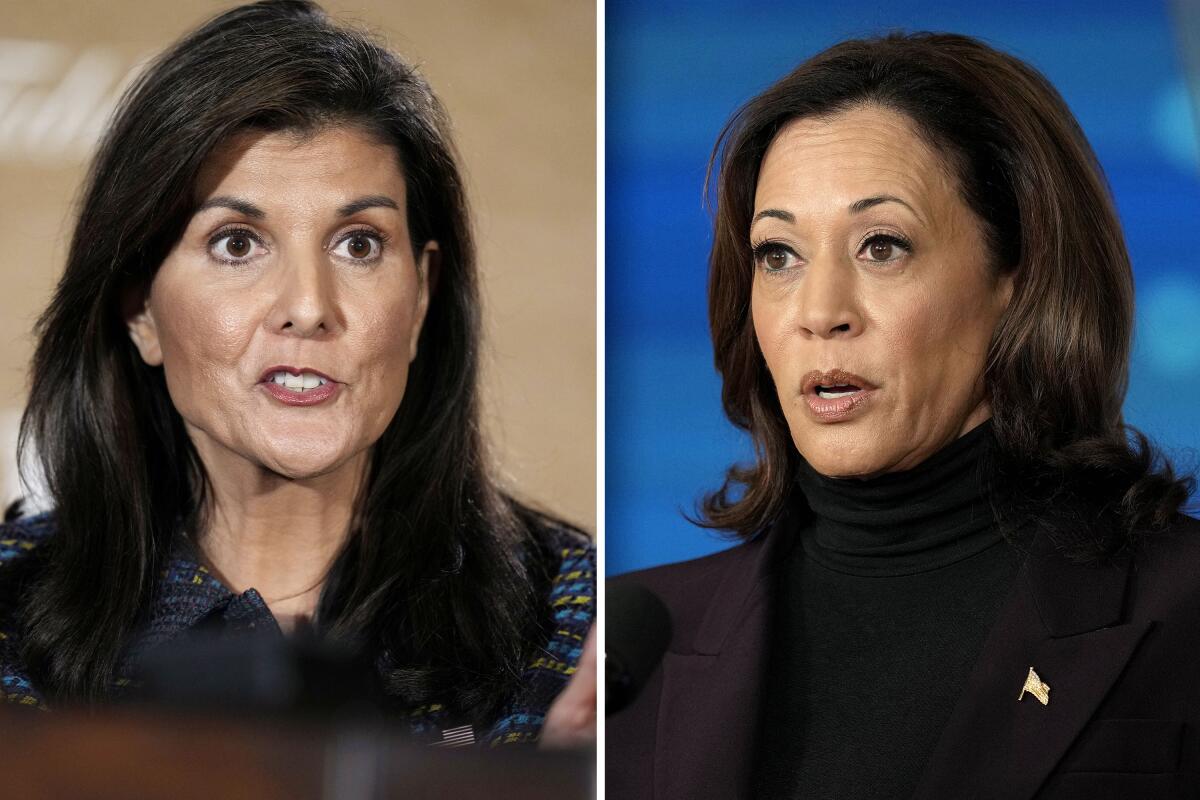
As the 2024 U.S. presidential election approaches, the influence of Indian-origin politicians in American politics is increasingly significant. This trend reflects the growing presence and impact of the Indian diaspora in the United States. Prominent figures like Kamala Harris, Nikki Haley, and others are shaping political discourse and policy decisions, which will have far-reaching implications for U.S. foreign policy towards South Asia, particularly Pakistan. This analysis explores the implications of this evolving political landscape for South Asia, a region that has been detrimental to the U.S.
Key Indian-Origin Politicians in U.S. Politics
Kamala Harris – As the Vice President of the United States, Kamala Harris is one of the most prominent Indian-origin figures in American political history. Her role not only positions her as a key player in domestic policy but also in shaping U.S. foreign policy. Harris’s background and her family ties to India might influence her perspectives on South Asian issues, potentially strengthening U.S.-India relations.
Usha Vance – An emerging political figure with Indian heritage, Usha Vance has gained attention for her contributions to policy discussions and advocacy on various issues. Her growing influence in the political arena may also impact U.S. foreign policy, particularly about South Asia and China.
Nimarata Nikki Haley – A former Governor of South Carolina and U.S. Ambassador to the United Nations, Nikki Haley has been a significant figure in Republican politics. Haley is the first Indian American to serve in a presidential cabinet. With a potential future in higher office, Haley’s stance on foreign policy, especially concerning South Asia, is closely watched. Her tenure as UN Ambassador involved addressing international conflicts and could reflect a nuanced understanding of South Asian geopolitics.
Other Key Figures – Congress members like Pramila Jayapal, Ro Khanna, and Raja Krishnamoorthi play crucial roles in shaping U.S. policy. Their contributions to discussions on foreign affairs and their advocacy for issues related to the Indian diaspora add depth to the discourse on U.S.-South Asia relations.
Broader Implications for South Asia
U.S.-India Relations
The growing presence of Indian-origin politicians in the U.S. is likely to enhance bilateral relations between the U.S. and India. These politicians may advocate for increased economic cooperation, fostering greater trade and investment between the two countries. Collaborative efforts in technology and defense could be emphasized, reflecting a mutual interest in advancing economic growth and addressing security challenges. Moreover, Indian-origin lawmakers might push for strengthened strategic partnerships, including joint military exercises and counterterrorism initiatives, which would solidify the defense ties between the U.S. and India. This closer alignment could bolster both countries’ positions on the global stage, enhancing their collective influence.
Impact on Pakistan
Counterterrorism and Regional Security
Indian-origin politicians, given their backgrounds and potential policy preferences, may push for a stronger emphasis on counterterrorism. This focus could translate into unwarranted pressure on Pakistan to address the issue of terrorism. For instance, the recent emphasis on counterterrorism by U.S. officials has already led to heightened scrutiny of Pakistan’s actions and policies. A more pronounced stance from Indian-origin politicians could exacerbate this pressure, potentially leading to more stringent conditions on military and economic aid, without acknowledging Pakistan’s continued efforts in countering terrorism.
Historically, U.S. policy shifts influenced by Indian perspectives have impacted Pakistan. For example, during the Obama administration, there was increased scrutiny of Pakistan’s counterterrorism efforts, partly driven by a broader U.S. strategic recalibration that included a more supportive stance towards India.
Economic Relations
Economic relations between the U.S. and Pakistan could also see adjustments due to the influence of Indian-origin politicians. U.S. trade and aid policies might evolve to reflect a balance between strengthening ties with India and addressing Pakistan’s economic needs. For example, the U.S. might prioritize trade agreements or economic support that favor India, potentially altering the flow of aid or trade benefits to Pakistan. This shift could be motivated by a desire to reward strategic partnerships or to counterbalance China’s influence in the region.
Previously, such dynamics were evident when U.S. assistance to Pakistan was adjusted based on broader geopolitical considerations. The suspension of military aid to Pakistan during the Trump administration, partly driven by a desire to align more closely with India’s strategic interests, serves as a historical example of how shifts in U.S. policy can impact Pakistan economically and strategically.
Diplomatic Strategies
Diplomatically, the U.S. may pursue a nuanced approach in its relations with Pakistan, influenced by Indian-origin policymakers’ perspectives on regional stability. This nuanced approach would aim to balance relations with both India and Pakistan, addressing ongoing tensions while striving for regional stability. The U.S. might engage in diplomatic efforts to mitigate conflicts, such as facilitating dialogue between India and Pakistan or leveraging its position to encourage de-escalation in areas of conflict.
For instance, the U.S. has historically attempted to mediate or facilitate dialogue during periods of heightened tension between India and Pakistan, such as during the Kargil conflict or after the Mumbai attacks. The influence of Indian-origin politicians could potentially lead to a re-evaluation of these diplomatic strategies, emphasizing a stronger alignment with Indian interests while seeking to manage relations with Pakistan delicately.
Implications for China
The rise of Indian-origin politicians in U.S. politics could significantly impact U.S.-China relations. Enhanced U.S.-India ties may be seen by China as a challenge to its regional dominance, potentially leading to increased support for India in disputes with China, such as those in the South China Sea or the Indo-China border. This support, whether through diplomatic backing or strategic aid, could heighten U.S.-China tensions.
Economic policies might also shift, with a focus on strengthening U.S.-India trade ties. This realignment could affect trade dynamics with China, altering economic relationships and impacting supply chains. Diplomatically and militarily, the U.S. might adopt a more assertive stance, bolstering military alliances with India and engaging in joint exercises. This approach could counter China’s regional influence, reshaping the geopolitical landscape in the Indo-Pacific region.
The influence of Indian-origin politicians in U.S. politics is a significant factor shaping the future of U.S.-South Asia relations. As the 2024 presidential election approaches, the policies and perspectives of these politicians will play a crucial role in determining the trajectory of U.S. foreign policy towards South Asia, including Pakistan. The outcomes of the election and subsequent policy decisions will likely impact regional dynamics, security strategies, and economic relations, highlighting the interconnectedness of domestic politics and international affairs.



















Leave a Reply